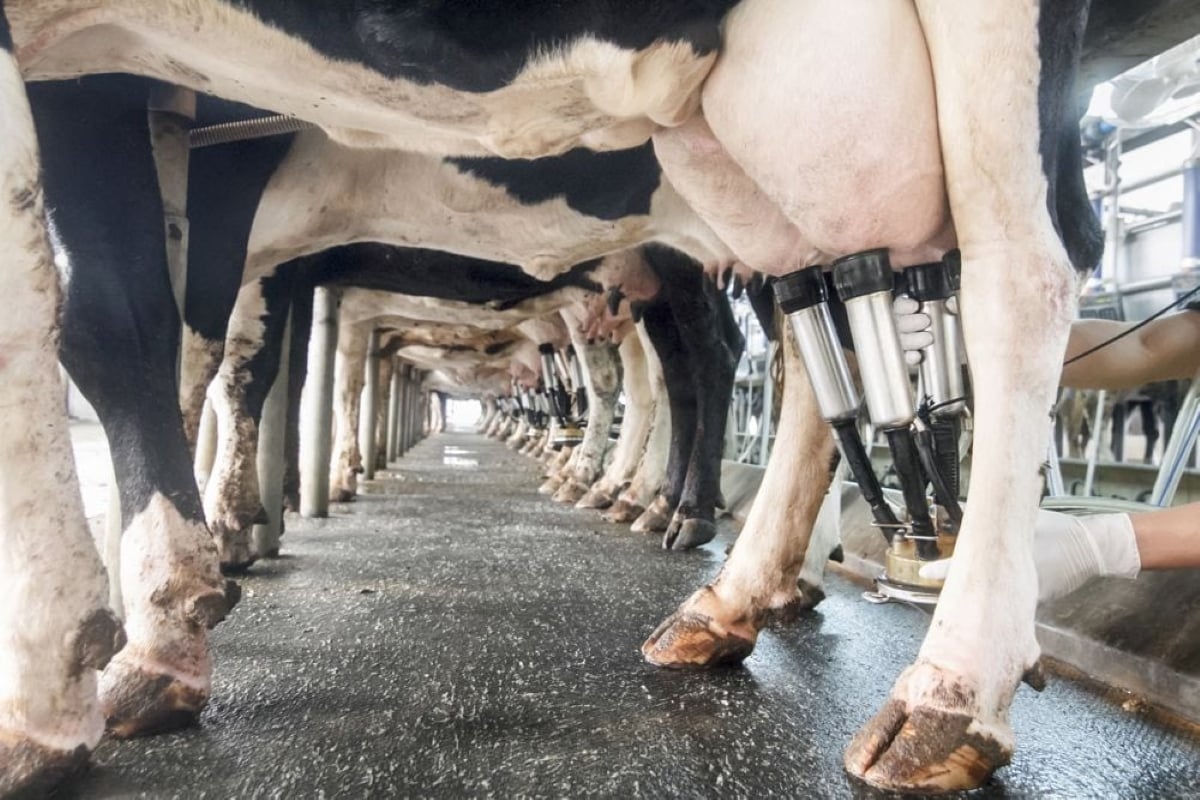MARQUETTE, Man. — Landowners, ranchers and politicians voiced their frustration last week over what they view as provincial government neglect and incompetence regarding the province’s third largest lake.
Approximately 350 of them packed into a community hall Feb. 22 near the south shores of Lake Manitoba to protest what they say is lack of compensation for the flood of 2011.
That was the year when near record high water levels on Lake Manitoba spilled water beyond its normal boundary, turning surrounding pasture and hayland into marshes and massive holding ponds.
Read Also

Farm gate milk price to rise in 2026
The Canadian Dairy Commission will raise its farm gate milk price by 2.3255 per cent in February, the Crown corporation announced on Friday.
Unlike most floods, this one was deliberate. The provincial government diverted billions of litres of water from the Assiniboine River into Lake Manitoba, as part of an effort to prevent severe flooding downstream of Portage la Prairie, Man.
However, many acres of pasture and hayland near the lake remained flooded last year, forcing ranchers to sell part of their herd or truck in hay from other parts of the province.
The provincial government made promises during the height of the 2011 flood to compensate landowners around the lake for multiple years, said Tom Teichroeb, a cattle rancher from Langruth, Man., who helped organize the meeting in Marquette.
Affected producers say they haven’t received compensation for their losses in 2012.
“The government made those promises,” provincial Progressive Conservative leader Brian Pallister said at the meeting.
“They (landowners) have been adversely affected by a flood not of their own making … and this situation calls for fulfillment of those promises.”
Speakers at the meeting said the government must also take action to ensure that flooding won’t be a recurring problem around the lake.
Bill Finney, a cattle rancher from Eddystone, Man., said the situation is particularly troubling for farmers who want to retire. Land values around the lake have plummeted, in some cases by 50 percent, because buyers must assume the risk of future floods, he said.
As a result, he added, producers looking to sell won’t get anywhere near the pre-flood value for their land.
Several speakers said part of the solution is to complete and expand channels at the north end of the lake, which would move excess water into Lake Winnipeg.
Others said something must be done to curb agricultural drainage upstream from Lake Manitoba.
“The drainage going on in Saskatchewan … is horrific,” said Robert Sopuck, MP for Dauphin-Swan River-Marquette.
“Drainage is required for many types of agriculture.… Nobody is anti-drainage. However, as Mr. Gerrard (Manitoba Liberal leader) pointed out, we need to take a look at how to keep more water on the land.”
After a dozen speakers at the meeting lambasted the government for its mismanagement of Lake Manitoba, Stan Struthers, Manitoba’s finance minister, took the microphone to defend the province’s actions.
The government spent approximately $1.25 billion on flood mitigation and compensation for the 2011 flood, which is a substantial figure, Struthers said.
As well, the province asked the federal government last summer to share the cost of compensating landowners for 2012. Ottawa has not responded, Struthers said.
Pallister said shifting blame to the federal government is unreasonable because the province must take action first.
“I was the minister of emergency measures (in Manitoba) in the ’90s,” he said.
“The provincial government has to pay the claims and it then goes to the federal government to ask for cost sharing arrangements and negotiates those. So placing blame on the federal government, when it’s your responsibility, is not helpful.”














